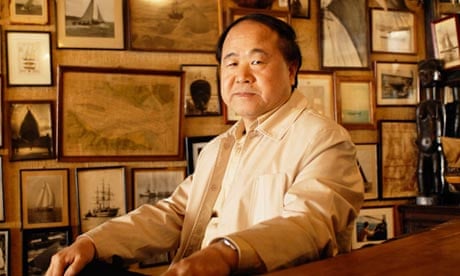If I'm excited, I can hardly imagine what Mo Yan is feeling now. I've been following the recent buzz, expecting disappointment but hoping for the good news that he has indeed been awarded this year's Nobel prize for literature. As Mo Yan's English-language translator, I can't help but feel a bit of pride, not so much for my work on his wonderful novels, but for having the insight or good fortune to spot him as a new and exciting writer a couple of decades ago. When I wrote to ask for permission to translate The Garlic Ballads (delayed till after the publication and movie of his breakthrough novel, Red Sorghum), he was a bit of a nobody and I an academic with a good Chinese name. He couldn't have been happier, nor could I. Seems we've come full circle.
We first met, in Beijing, after three of his novels had appeared in English, and have since met in a number of countries. He stayed with us in Colorado during the launch of his brilliant satire The Republic of Wine, a few days during which he seemingly read every Chinese novel on the bookcase in the guest room. Autodidacts are like that, I'm told.
This is a well-deserved honour for easily the most prolific, most popular and most widely respected serious novelist in China. Mo Yan writes big, bold, often bawdy novels that are as imaginative as they are sensuous, and always originate in his social conscience. To date I've translated nine of his works into English; the French, Italians, Germans, Japanese and others have done as many, sometimes more – we are all kept breathless by the enormous fictional output of a writer who dropped out of school at the age of 10 and amazed by the consistent beauty of what we read and translate.
The last time something good, but not this good, was on the horizon, he said: "wo qing ni he liang bei" (something like "the drinks are on me"). I can't wait.





Comments (…)
Sign in or create your Guardian account to join the discussion